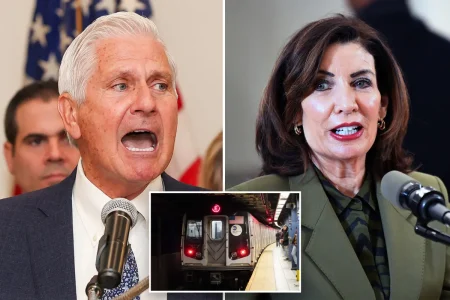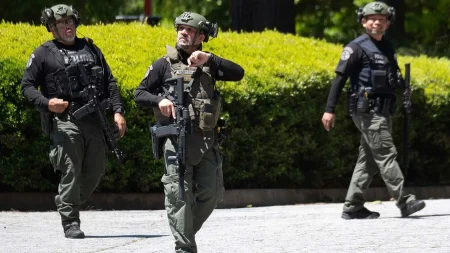Rubio Meets Netanyahu to Discuss Trump’s Vision for Gaza
In a significant diplomatic engagement, Secretary of State Marco Rubio recently held talks with Israeli Prime Minister Benjamin Netanyahu, focusing primarily on President Trump’s growing desire to bring the ongoing conflict in Gaza to a swift conclusion. The high-level meeting underscored the administration’s increasing concern about the humanitarian situation and regional stability as the war continues to extract a heavy toll on civilian populations.
During their discussions, Rubio conveyed President Trump’s position that while America remains firmly committed to Israel’s security and right to defend itself, the administration believes that a diplomatic resolution would better serve long-term interests for all parties involved. Netanyahu reportedly outlined Israel’s security concerns and military objectives, emphasizing the challenges of confronting Hamas while minimizing civilian casualties. The conversation highlighted the delicate balance between addressing Israel’s legitimate security needs and the urgent humanitarian crisis unfolding in Gaza.
The meeting comes at a critical juncture as international pressure mounts for a ceasefire and humanitarian access to Gaza increases. Rubio emphasized that President Trump’s administration is actively working with regional partners to develop a framework that could lead to de-escalation while addressing the core security concerns that triggered the conflict. Both officials acknowledged the complexity of achieving these goals while ensuring that any resolution would prevent similar attacks in the future and create conditions for sustainable peace.
Despite the focus on ending hostilities, sources familiar with the talks indicated that the discussion also covered post-conflict scenarios, including Gaza’s governance, reconstruction efforts, and the role of the Palestinian Authority. Rubio reportedly stressed that the Trump administration envisions a broader regional approach that would involve Arab states in both security arrangements and economic development for Gaza, potentially as part of a more comprehensive peace initiative. Netanyahu expressed cautious interest in these concepts while reiterating Israel’s position that any post-war arrangement must prevent Hamas from rebuilding its military capabilities.
The diplomatic engagement reflects the evolving U.S. position as the conflict enters a more challenging phase with increasing international scrutiny and humanitarian concerns. President Trump, who has consistently expressed strong support for Israel, appears to be recalibrating his approach as the war’s duration and civilian impact raise questions about strategic objectives and endgame scenarios. Rubio’s mission signals that while maintaining unwavering support for Israel’s security, the administration is now actively seeking pathways to wind down the military operations and transition to a more sustainable security arrangement.
As Rubio concluded his visit, both sides characterized the talks as productive and frank, though specific breakthroughs were not announced publicly. The meeting represents an important step in ongoing diplomatic efforts to find a resolution that addresses Israel’s security requirements while alleviating the humanitarian crisis in Gaza. With President Trump’s explicit desire for the conflict to end “soon,” the coming weeks may prove critical in determining whether diplomatic initiatives can successfully bridge the gap between Israel’s security objectives and growing international pressure for a ceasefire.










